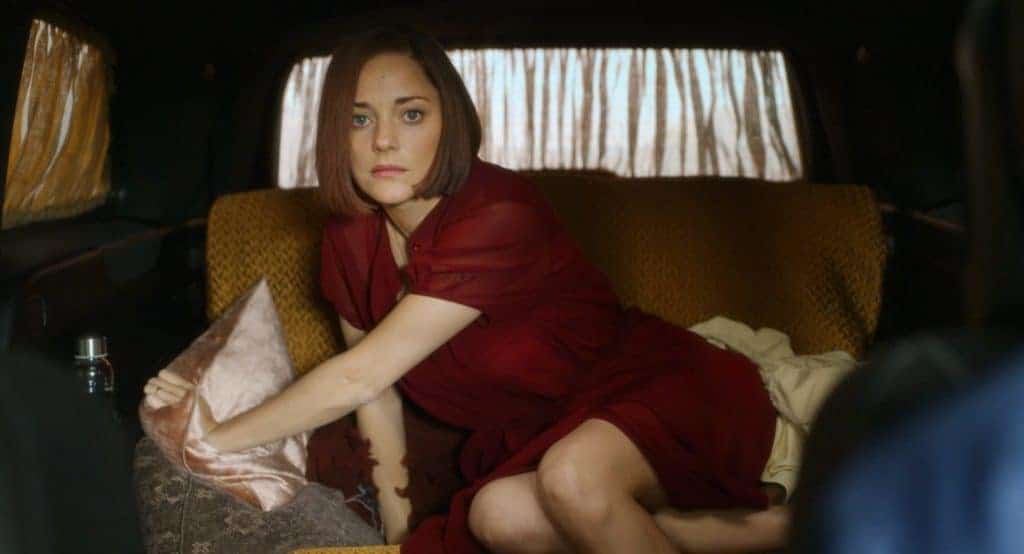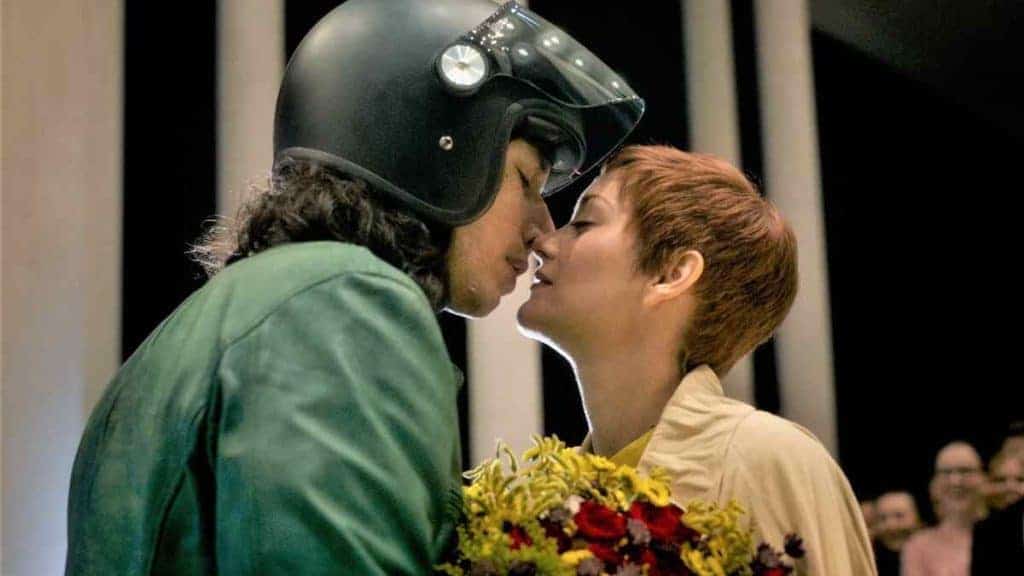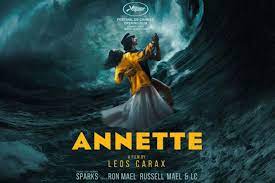The list of the 10 best films of 2021 has reached the very top, and from there, you can only stare down the abyss.
1. Annette

You’ve read about her. You’ve heard about her, but nothing will have prepared you for what you are about to see. Nothing will have prepared you for what you’re about to see and hear. Tonight Baby Annette!
Annette was the opening film at Cannes this year. As I wrote in my review, that lowered my expectations considerably. It turned out to be an extremely positive surprise. My first text published two days after the premiere, was basically Sparks-centred. After watching the film four times in a cinema and reading and listening to several interviews, the extent of Carax’s contribution is more evident. What follows will be full of spoilers. Readers are warned not to proceed if they want to avoid spoilers. You will not have to hold your breath, though.
When Ildikó Enyedi talked about The Story of My Wife, she described it as a tender farewell to patriarchy. Even if the films are pretty different, some things connect them. Both have a man at the centre who is apparently very sure of himself but with deep self-doubt or even self-loathing. In Enyedi’s film, it manifests itself in jealousy. In Annette, the contradiction between the nurturing woman and the destructive man is in plain sight and audible. When Henry and Ann meet after their respective performance, they kiss and ask each other how it went. Henry says that he killed and destroyed his audience. Then he asks Ann, who answers, “I saved them”.

At this point, it might be seen as playful banter between two people who just fell in love, but the polarisation will take a more sinister turn. During his first standup performance, Henry suddenly says that he has sympathy for the abyss. The audience doesn’t seem to understand, which prompts Henry to shout “A-B-Y-S-S, you illiterates!” The metaphor of the abyss will be central to the story. The form it takes in the film seems to be taken from Edgar Allan Poe, one of the individuals Carax thanks in the end credits. Other thanks go to Tom Lehrer, whose National Brotherhood Week is cited by Henry during his act. as well as to Béla Bálazs and Béla Bártok.
The Hungarian film theorist Béla Bálazs is, of course, not only the author of Der Sichtbahre Mensch and The Theory of Film, but he also wrote the libretto to Béla Bártók’s opera Bluebeard’s Castle, which Ann performs at one point during the film. The tale about Bluebeard and his latest wife, Judith, has several variations. The secret seven doors appear in most of them. In the opera, there are only three former wives, but in previous versions, there are typically six, just like the number of women who have come forward to accuse Henry in Ann’s nightmare. The fashion in how the theme of darkness vs light is addressed seems to come from that story as well.
What goes up must come down, my star’s in decline. What’s profound for a clown? My star’s in decline.
Henry McHenry
In my July piece, I remarked that even though the story is set in the artist world, it’s closer to Vertigo (which should have been called Vert-igo in French) than A Star is Born. Apart from the fact that vertigo is the feeling you get when you stare into an abyss, it is also interesting to note the use of the colour green. Already from the title sequence, Henry is associated with the colour. Adam Driver’s credit is in green, while Cotillard’s is orange. While walking, he is handed the jacket pictured above, and the robe he wears during the performance is the same colour. Even the audience during that performance seems to bathe in a green light,
Even if the colour doesn’t necessarily refer to the green-eyed monster, jealousy, as described in Othello, Henry is haunted, not only by Ann after her death but also by his self-hatred. He is well aware of his destructive impulses but is not able to master them. He understands how that will make it virtually impossible for him to be liked, let alone loved. This comes to its fullest expression in the song All the Girls, where Henry wonders what women see in him. The dancing girls around him act like a Greek chorus saying:
Hard to imagine
All these fucking men
Who hates themselves but
Want us to love them!
The song ends with Henry singing or rather talking with a voice of resignation:
All the girls I see
Look so great to me
But will I ever be
Lovable again?
The end of Annette, but a new beginning for Annette
Carax demanded some extra songs to be written that weren’t initially in Sparks’ version. One example is The Girl From the Middle of Nowhere which explains how Ann ended up in the situation she is in. More important is the finishing duet between Henry and Annette in prison. This is the first time when the titular character is played by a human being (Devyn McDowell) after being portrayed by several puppets in the previous scenes. The song is called Sympathy for the Abyss, and it’s a chilling closing to the film. Henry tries to explain his predicament, but Annette retorts, “Now You Have Nothing to Love”. She makes her position crystal clear, with good reason.
The theme of lovable vs likeable is the overarching theme of Sparks’ excellent 2008 album, Exotic Creatures of the Deep. It is fair to say that the concept gets a more profound treatment in Annette. with a human creature staring deep into the abyss. The film has been deeply polarising and has received ample criticism, in particular among those who would like films to be instrumental in a different way than Sparks. For me, this is The Number One Film, not only in heaven but here on terra firma as well.


